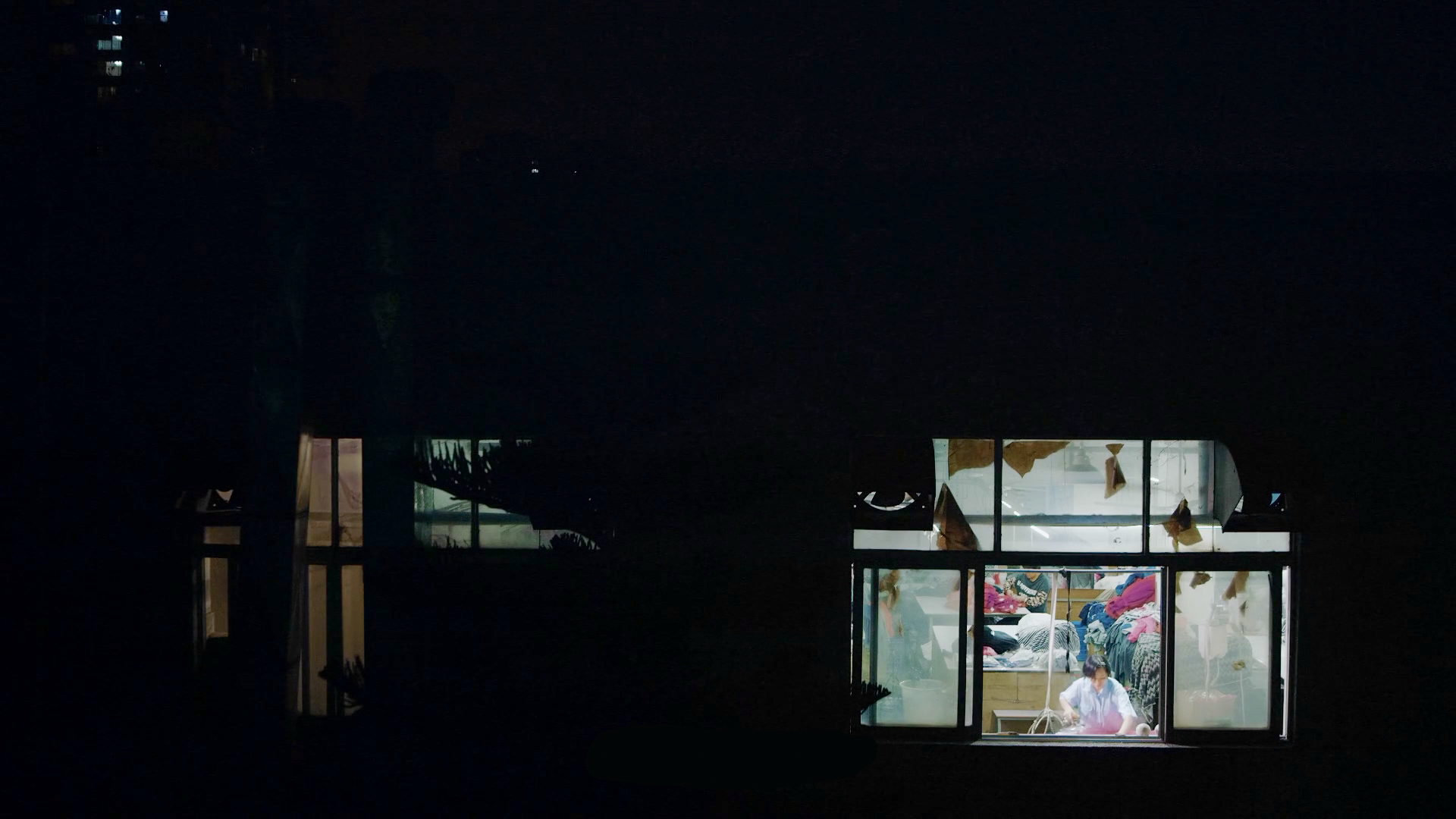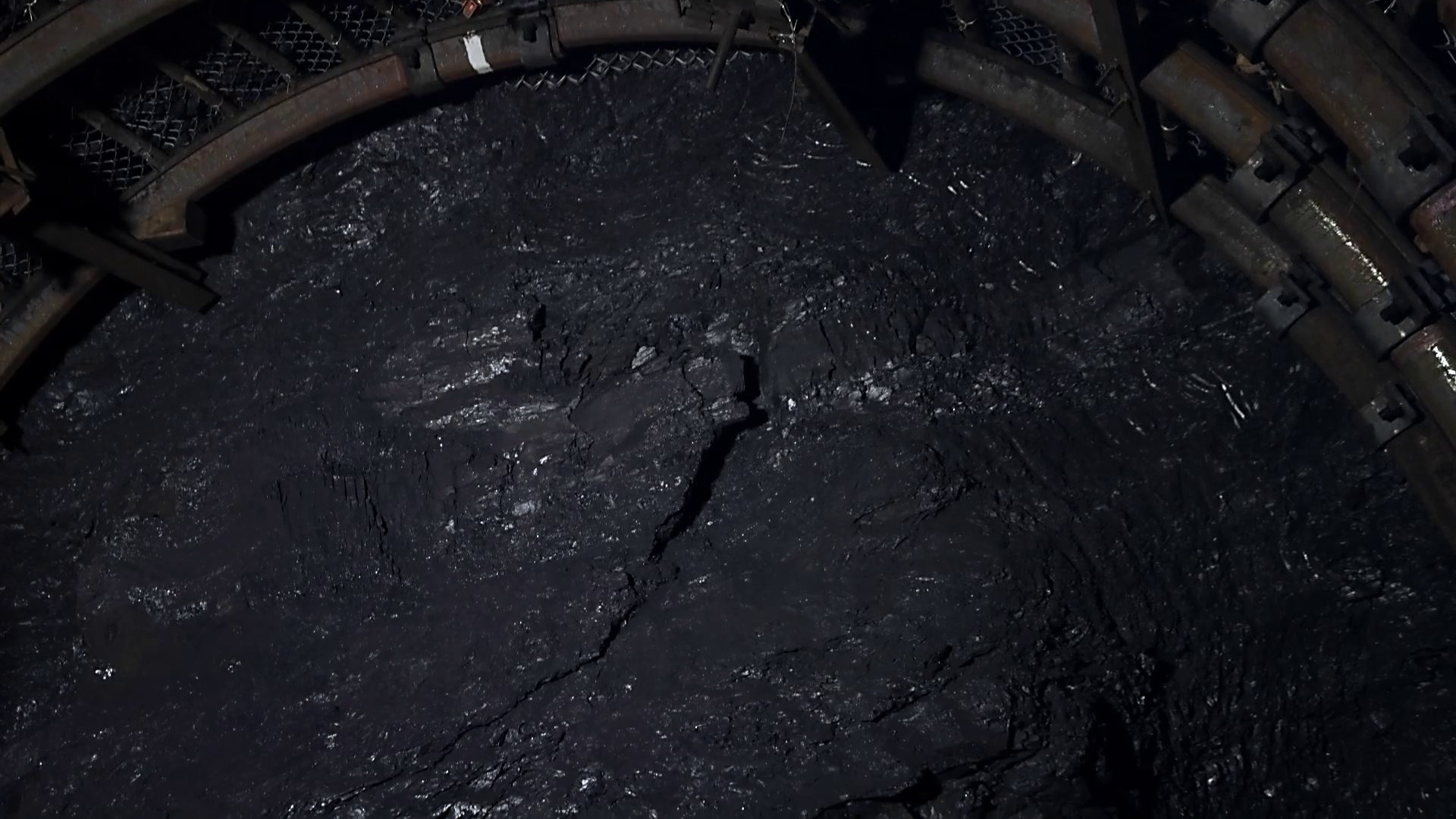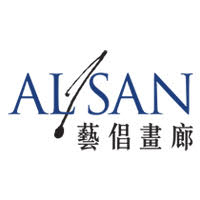
Film still from Iron Moon (2015). Courtesy Medoc.
“I swallowed an iron moon / they called it a screw,” poet Xu Lizhi wrote on his blog in 2013. Having worked on the assembly lines in Foxconn’s Longhua Science and Technology Park, he was one of the many nongmingong (migrant workers) who traveled fom rural villages to the cities in search of a vocation. The poetry of these laborers flourished on work reports, company journals, and online forums. It was presented by poet Qin Xiaoyu in the Iron Moon project, which includes a Chinese anthology, its English translation by Eleanor Goodman, a livestreamed reading event, and a documentary featuring the lives of five worker-poets.
Far from its socialist romanticization, labor under Deng Xiaoping’s reformed China is marked by precariousness. The marketization of manpower has turned bodies into interchangeable cogs in a harsh and hazardous system. As part of this system, these poets expressed a steely spiritlessness: Xu’s “Obituary for a Peanut” reproduces the label on a jar of peanut butter, while Xie Xiangnan’s “Work Accident Joint Investigative Report” recounts the amputation of a die-cutter operator: “From Ji’an, Jiangxi / Work Number: z0264.” The worker didn’t cry or scream. She just grabbed her finger and left.
“I want to look at the ocean again / to see the vastness of my half lifetime of tears . . . I want to touch the sky / and stroke that swath of pale blue”—Xu wrote these lines before leaping to his death at the age of 24. The documentary reveals that he had hid his writings from his parents in Jieyang so as to not upset them. Like worker z0264, he saw himself as another screw that fell to the ground, another life mutely spent on lines of production.

Wu Xia pressing dresses in a warehouse.
The dissociation experienced by migrant workers has a political cause: the temporary residency permits policy has systematized their rootlessness. Most constantly drifted across mainland China, risking custody and repatriation. Tang Yihong wrote in a poem: “when he saw me he hid behind my mother’s body . . . but the neighbor’s kid was excited . . . so it seems I’m really his father.” The line subtly mourns his torn relationships with both his empty-nester mother and left-behind son. In an aching scene in the documentary, ethnic minority poet Jike Ayou visited his family in rural Sichuan. He had missed his father’s shamanistic teachings and his mother’s memorial ceremony. As the country opened up to market economy, relations of production has taken over the land.
Still, one can find guileless tenderness. While the demolition worker Lucky Chen did not encounter his workmate by fate or comradeship, he still found meaning as they sang a drunken song together. Seamstress Wu Xia smiled from ear to ear as she recounted how she’d try on sundresses alone afterwork, seeing her reflection on a warehouse window in front of endless darkness. Her favorites are the ones with straps which she packaged in a sweaty uniform—“to iron the pleats to equal widths / so you can sit by a lake or on a grassy lawn / unknown girl / I love you”—a bittersweet, duty-bound fondness.
With a short runtime, the documentary struggles to capture the complexities of the workers’ poetry, presenting only the sentimental narratives. Yet, one could be overwhelmed by the ingenuity and emotional range shown in the anthology, proof being the myriad depictions of the moon. Zheng Xiaoqiong conveys the desires of married workers living in separate dorms: “The moonlight leaves a line of footprints on the iron vines of the security wall . . . the moonlight illuminates their fifteen-day honeymoon,” while Hubei Qingwa muses: “the moon has its own comprehensive / service orbit / To its direct superior / the moon is pretty, useful from afar / but hard to handle up close.”
As a result, the project was successful in raising awareness, evoking sensation, and sparking numerous debates of hard work (What’s the meaning of toil when there’s so much corruption?), pain (What would the poets have written about without it?), appropriation (Is the documentary tramua porn?), merit (What about the workers who didn’t write?), and suicides (Is Xu’s leap a final act of a poet versed in death, or a social tragedy?) But all these critical dialogues seem incomparable to the great mystery of iron. Despite all the toil, it remains cold and impenetrable, as described by Alu in “An Elegy for C”: “Covered by twilight, the huge cooling chunk of iron / gives off a darkening silence.”

An underground coalmine.
Curated by an ArtAsiaPacific editor, “Lore” is a biweekly blog that probes into the histories and mythologies of media.








